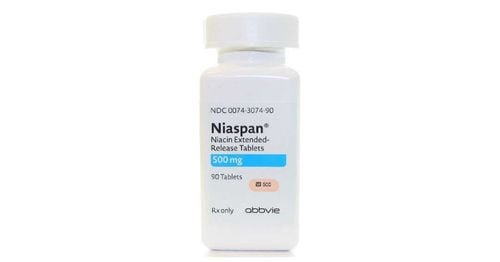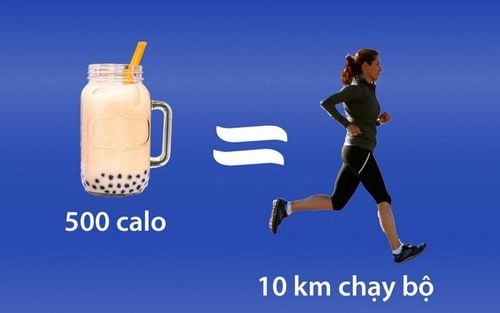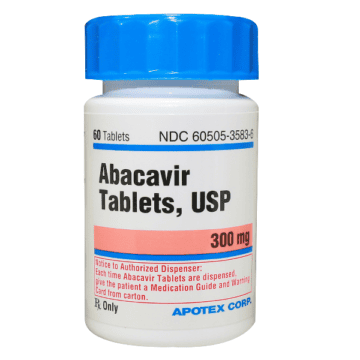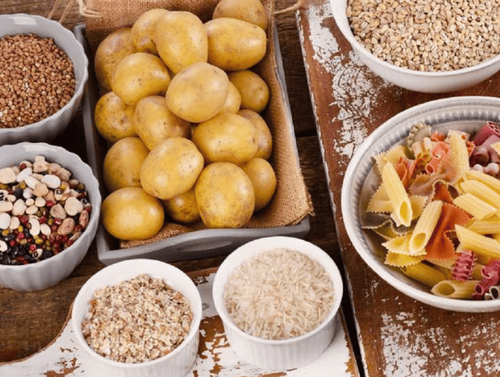This is an automatically translated article.
Several calorie calculators help you figure out how many calories you need to eat each day if you want to maintain your weight. But if you are trying to lose weight, you may need a weight loss calculator. One of them will answer the most important weight loss question: "How many calories should I eat a day to lose weight?" Read on to learn more about this article below.1. How many calories should you eat on average to lose weight?
It's simple to calculate the right amount of calories to lose weight, gain weight or maintain weight. Just follow the simple steps. Then you'll know how many calories you need to eat a day to reach your weight loss goal.The answer to this question depends on many factors, including your age, height, current weight, activity level and metabolic health, among several others. When trying to lose weight, a general rule of thumb is to reduce your calorie intake to 500 fewer calories than your body needs to maintain your current weight. This will help you lose about 1 pound (0.45 kg) of body weight per week.
Trắc nghiệm: Muối trong thực phẩm, natri, huyết áp và sức khỏe của bạn
Muối, natri là chất khoáng cần thiết cho cơ thể để duy trì hoạt động ổn định. Tuy nhiên, chế độ ăn thừa muối có nguy cơ cao dẫn tới các vấn đề sức khỏe nghiêm trọng. Cùng làm bài trắc nghiệm sau đây để hiểu hơn về những ảnh hưởng của các khoáng chất này tới huyết áp và sức khỏe bạn thế nào nhé.
Nguồn tham khảo: webmd.com
1.1. Women Average, moderately active women ages 26–50 need to eat about 2,000 calories per day to maintain weight and 1,500 calories per day to lose 1 pound (0.45 kg) of weight per week .Women who are active and walk more than 3 miles will need to one day consume 2,200 calories or more daily to maintain their weight and at least 1,700 calories to lose 1 pound (0.45 kg). ) weight per week. Young women in their 20s often have higher calorie needs. They need about 2,200 calories a day to maintain their weight. Women over 50 will usually need fewer calories. The average moderately active woman over 50 needs about 1,800 calories per day to maintain weight and 1,300 calories per day to lose 1 pound (0.45 kg) per week. These estimates do not apply to women who are pregnant or breastfeeding because they have higher calorie needs.
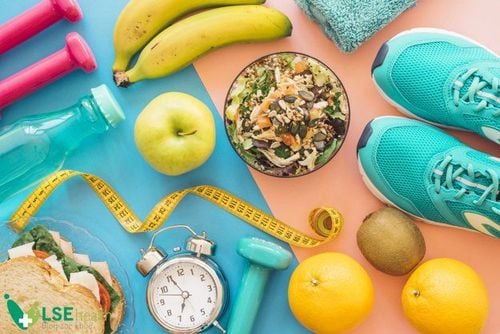
Men aged 19 to 25 have higher energy needs. They require an average of 2,800 calories per day to maintain their weight and up to 3,000 if they are active. To lose 1 pound (0.45 kg) per week, young men who need to be moderately active should consume 2,300–2,500 calories per day.
Energy needs decrease as men age. Between the ages of 46 and 65, moderately active men need an average of 2,400 calories per day. After 66 years, the average man's calorie needs will drop to about 2,200 calories per day.
1.3. Children Children will have a very different calorie requirement based on their age, size and activity level. While the average toddler needs 1,200–1,400 calories per day, the average moderately active teen needs 2,000–2,800 calories per day. Active teenage boys demand more than that. Children who are growing and developing normally, when engaged in regular physical activity, do not usually need to count calories. When they are offered a range of healthy eating options, most children who are moderately active will naturally eat enough of the food their bodies require.
2. How to reduce calories
Calorie is a unit of measurement of energy. Calories are commonly used in measuring the energy content of foods and beverages. To lose weight, you need to eat fewer calories than your body burns each day. Calories are simply a measure of energy. To gain weight, you need to consume more calories than you expend. And vice versa, you will lose weight if you use more calories than you consume.That said, cutting calories without considering the foods you eat is often not a sustainable way to lose weight. For example, choosing foods that are richer in nutrients is more beneficial to your health than choosing foods that are less nutritious. While it works for some people, most of them feel hungry and eventually go back to their old habits.
It is for this reason that you should make some other long-term changes to help you maintain your calorie deficit for a long time without feeling hungry. The following evidence-based dietary and lifestyle changes have been shown to help people lose weight.
2.1. Eat more protein When it comes to weight loss, protein is king of nutrients. Adding protein to your diet is a simple and effective way to lose weight with minimal effort. Studies show that protein both increases your metabolic rate and helps curb your appetite.
Since protein requires energy to metabolize, a high-protein diet can increase the number of calories you burn by 80–100 calories per day. Eating protein keeps you fuller for longer and can help you consume fewer calories throughout the day. An older study found that people who ate 30% of their calories from protein ate 441 fewer calories per day. In other words, you can increase the number of calories burned and decrease the number of calories consumed simply by adding protein to your diet. Protein can also help you fight cravings.
In a 2011 study, consuming 25% of daily calories from protein reduced obsessive thoughts about food by 60%, as well as the desire to snack at night by 50%. If you want to lose weight sustainably and with minimal effort, consider increasing your protein intake. It can not only help you lose weight, but also help prevent or reduce weight gain again.
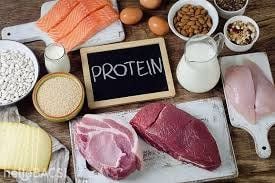
Studies have shown that sugar-sweetened beverages are strongly associated with an increased risk of obesity, with one study in children showing a 60% increased risk for each daily serving of sugary drinks. day. The harmful effects of sugar are not limited to weight gain. It can have a negative impact on metabolic health and increase the risk of chronic, cardiovascular diseases.
Eating fruit, which also contains fiber and other important nutrients, is not associated with the same negative effects as drinking juice or other sugary drinks. However, eating large amounts of sugar and sugary drinks can harm your health in a variety of ways.
2.3. Drink more water A very simple tip to increase the effectiveness of weight loss is to drink a lot of water. Studies have suggested that drinking water can increase the number of calories you burn within 90 minutes. Drinking about 8 8-ounce glasses (2 liters) of water per day will help you burn about 96 extra calories. However, recent studies suggest that drinking water may not increase the number of calories you burn. The timing of your water intake may be even more important. Drinking water right before a meal will help reduce hunger and make you eat fewer calories.
In a 12-week study, drinking 17 ounces (0.5 liters) of water half an hour before a meal caused people to lose 44% more weight. When combined with a healthy diet, drinking more water, especially before meals, seems to be helpful if you need to lose weight. Drinking caffeinated beverages, such as coffee and green tea, may also boost metabolism slightly, at least in the short term. Doing so is linked to losing weight and maintaining it.

The only proven strategy to prevent this effect is to work your muscles by lifting weights. This has been proven time and time again to prevent muscle loss and prevent your metabolism from slowing down during long-term calorie restriction. When trying to lose weight, the most important thing is to maintain or strengthen your muscles in addition to losing fat. If you can't get to the gym, consider doing bodyweight exercises, such as push-ups, squats, and sit-ups, at home.
Doing some cardiovascular exercise, including walking, swimming or jogging, can also be important - not necessarily for weight loss but for optimal health and overall well-being. What's more, exercise has many other benefits beyond weight loss, such as increased longevity and energy levels, reduced disease risk, and simply feeling better every day.
2.5. Reduce Your Refined Carbs Cutting carbs is a very effective way to lose weight, as it reduces your appetite and makes you eat fewer calories. Studies have shown that eating a low-carb diet until fullness can make you lose about 2-3 times more weight than a calorie-restricted and low-fat diet.
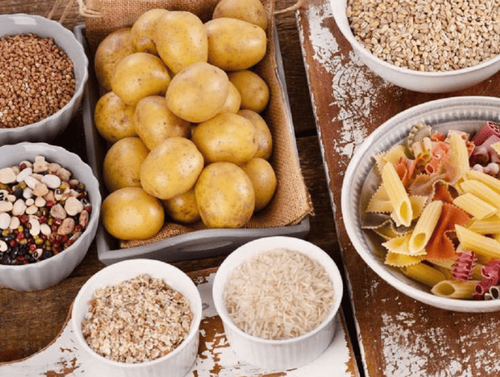
Please follow the website ( www.vinmec.com ) for more information on health care instructions, which we will update regularly.
Please dial HOTLINE for more information or register for an appointment HERE. Download MyVinmec app to make appointments faster and to manage your bookings easily.
Reference source: healthline.com



